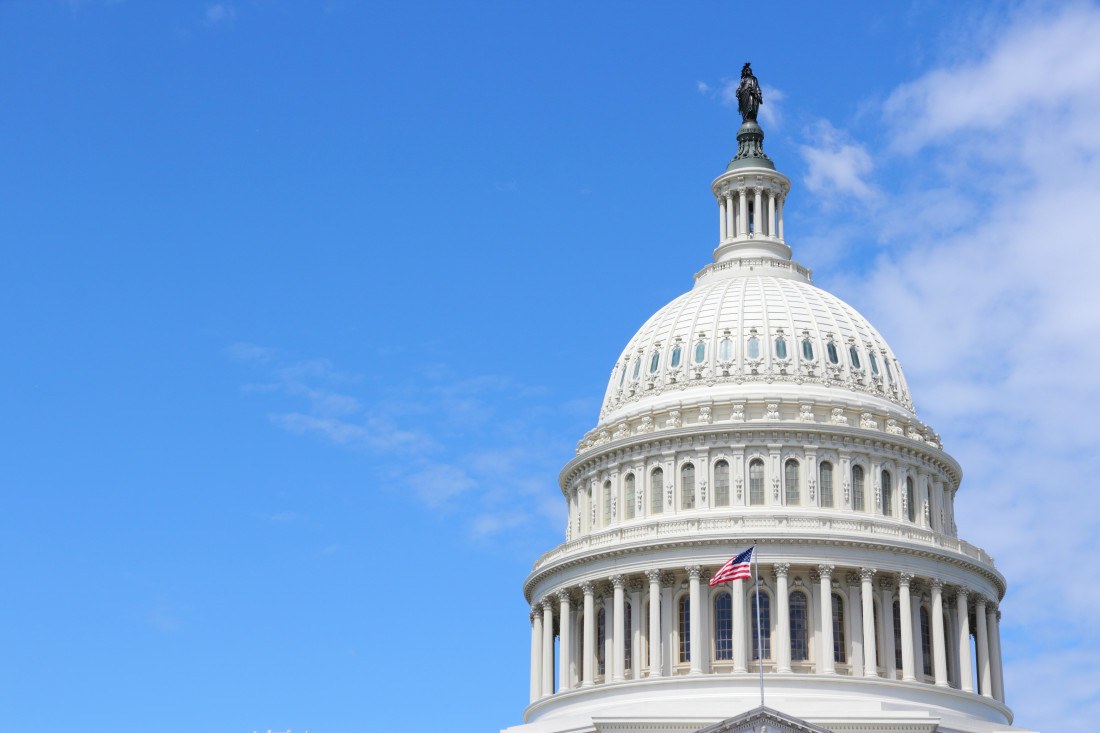

By Paul Hoff and Dan Petalas Over the last few years the pace of Chinese direct investment in the U.S. has increased at a remarkable rate. In 2016 the $45 billion of Chinese acquisition and expansion in the U.S. was three times the amount in the preceding year. The accelerating investment curve in turn has fueled a nine-fold increase since 2009 in the number of Americans directly employed by Chinese-owned firms. It now hovers around 140,000 new jobs. And at the beginning of 2017, another $21 billion in scheduled U.S. acquisitions by Chinese companies was already in the pipeline.[1]
Over the last few years the pace of Chinese direct investment in the U.S. has increased at a remarkable rate. In 2016 the $45 billion of Chinese acquisition and expansion in the U.S. was three times the amount in the preceding year. The accelerating investment curve in turn has fueled a nine-fold increase since 2009 in the number of Americans directly employed by Chinese-owned firms. It now hovers around 140,000 new jobs. And at the beginning of 2017, another $21 billion in scheduled U.S. acquisitions by Chinese companies was already in the pipeline.[1]
There have been a number of dire predictions that all this Chinese direct investment into the U.S. would be in serious jeopardy under the new Trump Administration. This concern has been fueled by some of President Trump’s attacks on Chinese economic policies during the 2016 presidential campaign and by some proposals from individual members of Congress. In reality, President Trump to date has taken no step to curb Chinese investment in the U.S. Recent statements suggest to the contrary that the Administration overall favors continuation of existing foreign investment policies, while leaving room for minor changes. Even during the presidential campaign last year, Mr. Trump’s opposition to China on the economic front emphasized the unfavorable balance of trade. He did not champion a policy of opposing Chinese investment in the U.S. outright. Once President, he moderated his views on trade with China, as he has openly expressed the importance of easing tensions on the economic front to ensure greater cooperation from China on the national security issues posed by North Korea. Moreover, President Trump recently reversed his views in the campaign, and no longer sees China as a currency manipulator.
The situation requires close monitoring because there are political forces pushing for significant hardening of investment policies towards China, and U.S. restrictions on foreign investment may stiffen around the edges. The threat of a broad new anti-Chinese investment policy, however, appears over stated. In most cases, Chinese investors should not be deterred by fear of opposition from the U.S. government.
Narrow Scope of CFIUS Review
The U.S. government controls foreign investment in the U.S. primarily through an interagency committee called the Committee on Foreign Investment in the U.S., or CFIUS. It is chaired by the Treasury Secretary, Mr. Steven Mnuchin. On May 1, he publicly rejected the idea that CFIUS should block foreign investments on the basis of any grounds except national security. And he rejected using the process to target China or any other particular foreign investor. In the face of proposals from members of Congress to increase sharply restrictions on Chinese investment, he hinted that any changes to the CFIUS law should be minor in nature, and none should be targeted specifically at China. In another interview in April, he placed improving the trade balance with China ahead of any concern over investment issues, and said when the Administration does address investment issues it would be to loosen restraints on U.S. investment in China rather than restrict Chinese investment in the U.S.
Key to assessing the threat of unfavorable CFIUS action is understanding its narrow scope. It does not cover every type of transaction, and it does not authorize the U.S. government to block any deal that is covered except on the relatively narrowly defined grounds of national security. As to coverage, the law only applies to foreign acquisitions of control over ongoing U.S. businesses.  Importantly, the law does not apply to greenfield investments or deals involving assets that are not considered an ongoing U.S. business (e.g., individual parcel of land, abandoned warehouses, etc.), not does it apply to most types of loans, or to investments that do not involve foreign control (e.g., less than 10% ownership). Even if a particular transaction is a type covered by the law, CFIUS is interested only if the deal raises national security concerns. This may happen, for example, if the deal gives the acquiring foreign company access to military weaponry, electronics, and other advanced technology with military implications (e.g., advanced computers and semi-conductors). It may raise national security issues if the deal could affect Defense Department access to goods or services of all sorts important to the Department. National security concerns also include possible threats to U.S. protections against espionage or breach of cyber security, the safety of critical infrastructures (e.g., energy, telecommunications, transportation), and other critical industries that may affect national economic security, or homeland security. The law authorizes CFIUS and ultimately the President to block a transaction on national security grounds, or to require the mitigation of a threat to national security before it can proceed.
Importantly, the law does not apply to greenfield investments or deals involving assets that are not considered an ongoing U.S. business (e.g., individual parcel of land, abandoned warehouses, etc.), not does it apply to most types of loans, or to investments that do not involve foreign control (e.g., less than 10% ownership). Even if a particular transaction is a type covered by the law, CFIUS is interested only if the deal raises national security concerns. This may happen, for example, if the deal gives the acquiring foreign company access to military weaponry, electronics, and other advanced technology with military implications (e.g., advanced computers and semi-conductors). It may raise national security issues if the deal could affect Defense Department access to goods or services of all sorts important to the Department. National security concerns also include possible threats to U.S. protections against espionage or breach of cyber security, the safety of critical infrastructures (e.g., energy, telecommunications, transportation), and other critical industries that may affect national economic security, or homeland security. The law authorizes CFIUS and ultimately the President to block a transaction on national security grounds, or to require the mitigation of a threat to national security before it can proceed.
CFIUS’s Treatment of Chinese Transactions
 The present law does not single out Chinese investments for more searching review by CFIUS. In addressing the issue last year, the former Deputy Assistant Secretary for Investment Security at the Treasury Department confirmed that CFIUS conducts its reviews of Chinese transactions no differently than transactions from any other country. As noted, Secretary Mnuchin’s recent statements are consistent with that policy. And although the committee is made up of politically appointed heads of federal departments and offices, the working staff of CFIUS are career civil servants who perform their responsibilities without national prejudice.
The present law does not single out Chinese investments for more searching review by CFIUS. In addressing the issue last year, the former Deputy Assistant Secretary for Investment Security at the Treasury Department confirmed that CFIUS conducts its reviews of Chinese transactions no differently than transactions from any other country. As noted, Secretary Mnuchin’s recent statements are consistent with that policy. And although the committee is made up of politically appointed heads of federal departments and offices, the working staff of CFIUS are career civil servants who perform their responsibilities without national prejudice.
As a general matter, most deals submitted voluntarily to CFIUS are approved without condition. According to the Treasury Department in 2014 (the most recent year for which figures are available) less than 9% of the 147 deals submitted to CFIUS did not proceed either because of CFIUS opposition or for commercial considerations.[2] In another 6% of the deal CFIUS required adoption of measures to mitigate the national security concerns before they proceeded. As in deals involving other countries, the relatively few Chinese deals that encounter trouble at CFIUS typically present straightforward national security issues. Illustrative are several recently terminated transactions involving Chinese companies seeking to acquire businesses engaged in the development of semiconductor and related LED technologies—Lumileds (a Dutch company with a division in the U.S.), Aixtron SE (a German company with a U.S. subsidiary), and Global Communications Semiconductors, LLC (a U.S. company)—because of apparent concerns of CFIUS about the military applications of that technology. Two potential transactions currently attracting headlines also raise national security issues. A proposed $2.3 billion bid by Zhongwang USA, a Chinese-owned business, to acquire Aleris Corporation, a U.S. sheet metal producer, has provoked public attention and CFIUS scrutiny. Aleris produces and develops aluminum and other materials used in military airplanes generally, and in particular produces ballistic-resistant aluminum with national security implications. In another developing matter, the Trump Administration has made it clear that CFIUS would take a critical look at any direct or indirect Chinese involvement in the acquisition of Westinghouse Electric, Inc., a maker of nuclear reactors for electric utilities, because of the military and civilian application of the company’s nuclear technology.
Recent Proposals for an Expanded CFIUS Mandate
Various members of Congress who are dissatisfied with the relatively narrow, national security focus of CFIUS are campaigning to broaden the law’s scope. Some are aimed at changing the scope of CFIUS concerns to include threats to specific sectors not ordinarily associated with national security concerns, such as a March 2017 legislative proposal to include concerns about the security of U.S. agricultural and the related food-chain.  Others have focused more specifically on Chinese investment, as both Senate Minority Leader Schumer and Senate Majority Whip Cornyn are reportedly working on different proposals to broaden the scope or extent of CFIUS’s national security review of Chinese transactions. This is in the wake of a proposal last November by the U.S.-China Economic and Security Review Commission to bar Chinese state-owned enterprises from acquiring effective control of U.S. companies. Other members of Congress recently asked the research arm of Congress (the Government Accountability Office) to review whether legislation should require CFIUS to review all transactions involving Chinese state-owned businesses, require CFIUS to assess the net economic benefit of foreign acquisitions, or take into consideration whether the acquiring company’s government allows foreign investment from the U.S. to the same extent. For example, in testimony during his confirmation hearings, Commerce Secretary nominee Wilbur Ross Jr. highlighted complaints that while Chinese firms are moving to acquire U.S. firms in the entertainment and media sectors, the Chinese government largely bars U.S. firms acquiring Chinese companies in the same sector.
Others have focused more specifically on Chinese investment, as both Senate Minority Leader Schumer and Senate Majority Whip Cornyn are reportedly working on different proposals to broaden the scope or extent of CFIUS’s national security review of Chinese transactions. This is in the wake of a proposal last November by the U.S.-China Economic and Security Review Commission to bar Chinese state-owned enterprises from acquiring effective control of U.S. companies. Other members of Congress recently asked the research arm of Congress (the Government Accountability Office) to review whether legislation should require CFIUS to review all transactions involving Chinese state-owned businesses, require CFIUS to assess the net economic benefit of foreign acquisitions, or take into consideration whether the acquiring company’s government allows foreign investment from the U.S. to the same extent. For example, in testimony during his confirmation hearings, Commerce Secretary nominee Wilbur Ross Jr. highlighted complaints that while Chinese firms are moving to acquire U.S. firms in the entertainment and media sectors, the Chinese government largely bars U.S. firms acquiring Chinese companies in the same sector.
Steps to Take to Protect Against Problems with CFIUS
Overall, important factors are likely to encourage the U.S. government to protect Chinese investment. Continued open access to foreign investment in American industry provides a quick and welcome return on the new Trump Administration’s central policy tenet of improving job prospects for workers in the U.S. And billions of dollars in direct investment by Chinese-owned companies bring more and better-paying domestic jobs and improved economic conditions in almost every congressional district. The value of this will not be lost on the Administration or congressional policy makers. As we have seen, Treasury Secretary Mnuchin has expressed Administration support only for very limited amendments to the CFIUS law. Nevertheless, the variety of legislative proposals being considered in Congress reflect significant congressional interest in tightening the CFIUS process, especially with respect to China. The position of the Trump Administration on targeted changes that would adversely affect Chinese investment is uncertain, and the uncertainties and tradeoffs inherent in the legislative process always makes it possible that broader legislation harmful to China could emerge from Congress.
 Given the political climate in the United States, it is more important than ever that Chinese-owned businesses and investors that wish to expand their holdings in the attractive U.S. marketplace proceed from the outset with a thorough understanding of the processes and factors that CFIUS will use to evaluate, modify, or possibly unwind a transaction based on perceived threats to the national security apparatus and infrastructure of the U.S.
Given the political climate in the United States, it is more important than ever that Chinese-owned businesses and investors that wish to expand their holdings in the attractive U.S. marketplace proceed from the outset with a thorough understanding of the processes and factors that CFIUS will use to evaluate, modify, or possibly unwind a transaction based on perceived threats to the national security apparatus and infrastructure of the U.S.
Anyone considering the possibility of a U.S. acquisition should monitor policy developments in the Trump Administration and Congress that could impact those goals. When a Chinese investor comes closer to achieving acquisition of a U.S. company, the deal negotiations should proceed with careful attention to the issues posed by the authority of CFIUS to block or require changes to a proposed deal. By conducting an intelligent CFIUS assessment, structuring perceived security risks at the beginning of a transaction, and considering risk-mitigation measures as necessary throughout the process, Chinese investors can navigate CFIUS review in most cases with high expectation of success.
A variety of procedures are available that can and often do dispose of concerns that the U.S. will block a transaction on national security or critical infrastructure grounds. Up front, investors should examine whether the proposed deal is in fact a covered CFIUS transaction under the law. That may not always be obvious, but a decade of experience since the prior amendment to the law provides guidance on where the fault lines may be found. It also will be critical to structure the transaction with care as to how control and direction of the new venture will be distributed among foreign and domestic owners. It may be advisable to include terms requiring CFIUS approval and addressing contingent losses in the event CFIUS recommends withdrawing a transaction, or imposes risk mitigation requirements. Investors should also give advanced consideration to public messaging about a transaction to help curb calls from interest groups or Congress for closer CFIUS scrutiny. A strategic approach to these concerns are essential to any Chinese investment that might touch on national security or critical infrastructure issues.
GSB’s Trusted History in China and Deep Cross-Border and CFIUS Experience
Founded 50 years ago in the Pacific Northwest, with offices in strategic locations along both U.S. coasts and in Beijing, Garvey Schubert Barer (GSB) brings particular experience to the representation of cross-border business involving China and other Asian markets. GSB is currently one of only 11 U.S. law firms officially recommended and approved by the Chinese government for representation in transactions with Chinese entities. In 1979, Stan Barer, one of the firm’s founding partners, assisted in negotiations to resume shipping relations between the United States and the People’s Republic of China following a 30-year hiatus. GSB’s attorneys have substantial experience representing businesses in all manner of cross-border transactions and enforcement proceedings. Our attorneys are available to assist with any questions regarding these or related subjects, wherever you may be located.
For any questions, feel free to contact Paul Hoff at paul.hoff@foster.com.
[1] Report of the National Committee on U.S.-China Relations & Rhodium Group, New Neighbors: 2017 Update (Apr. 2017).
[2] CFIUS 2014 Annual Report to Congress, dated by the Committee, February 20, 2016.